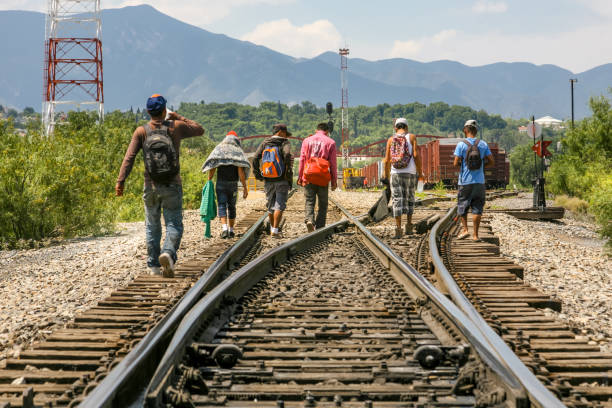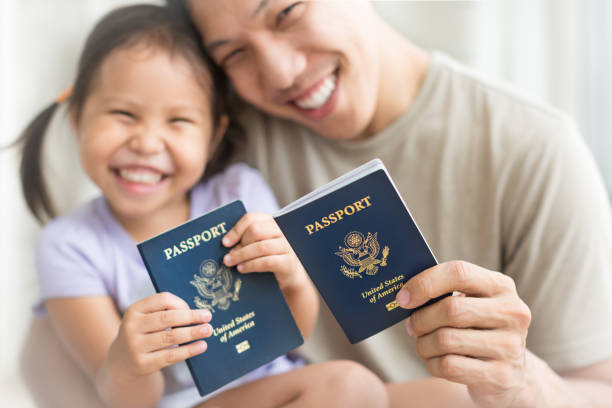Coming to America: Push and Pull Factors of Immigrating to the U.S.
Coming to America: Push and Pull Factors of Immigrating to the U.S.
The United States has been a leading destination for immigrants seeking better opportunities and a fresh start for centuries. As a land of economic promise, political stability, and cultural diversity, the U.S. attracts individuals from around the world. However, immigration is often motivated by a combination of factors that influence individuals to leave their home countries (push factors) and select the U.S. as their preferred destination (pull factors).
This article explores the primary push and pull factors that drive immigration to the U.S., offering insight into the complex reasons behind the decision to migrate.
Push Factors: Reasons People Leave Their Home Countries
1. Economic Hardship and Unemployment
Economic challenges are one of the most significant factors driving migration. In many countries, high unemployment rates, low wages, and limited job prospects push people to seek better opportunities abroad. Economic hardship can leave individuals unable to support their families, access quality housing, or achieve upward mobility. The lack of a stable income and financial insecurity often compels people to consider relocation to a country with stronger economic prospects, such as the U.S.
2. Political Instability and Conflict
Political instability, civil unrest, and armed conflicts create unsafe environments that force individuals and families to flee their homes. Wars, governmental corruption, and political repression can result in severe consequences, including persecution, loss of property, and personal danger. Countries experiencing political turmoil, such as Afghanistan, Syria, and Venezuela, have seen significant migration flows as citizens seek refuge in safer nations. The U.S., known for its stable democratic system, offers a refuge for those escaping unstable regimes and seeking political freedom.
3. Lack of Access to Quality Healthcare and Education
Access to quality healthcare and education is limited in many parts of the world, particularly in developing nations. Poor healthcare infrastructure, inadequate medical facilities, and a shortage of skilled professionals push individuals to consider moving to countries where they can access better medical services. Similarly, the lack of high-quality education systems and opportunities for advanced learning often drives families to seek relocation options that ensure their children receive a good education.
4. Environmental Factors and Climate Change
Climate change and environmental issues are increasingly contributing to global migration patterns. Natural disasters, such as hurricanes, droughts, and floods, can displace entire communities, forcing people to seek safer, more sustainable living conditions. Additionally, climate change affects agriculture, leading to crop failures and food shortages that push rural populations to leave their homes. For many, moving to a country like the U.S. offers a chance to rebuild in a stable environment less prone to severe climate risks.
5. Social and Religious Persecution
In regions where individuals face discrimination or persecution due to their religious beliefs, ethnicity, or political affiliations, migration becomes a means of securing safety and freedom. In countries where certain religious or ethnic groups are marginalized, individuals may face threats to their lives, limited access to resources, or restrictions on their rights. The U.S., with its foundational principles of religious freedom and tolerance, serves as a sanctuary for those escaping persecution, offering them the opportunity to live without fear.
Pull Factors: Reasons People Choose the U.S. as a Destination
1. Economic Opportunity and Job Prospects
The U.S. has long been seen as a land of economic opportunity, attracting immigrants with the promise of better job prospects and higher wages. The country’s diverse economy spans multiple industries, including technology, healthcare, finance, and manufacturing, providing a wide range of employment options. Many immigrants come to the U.S. seeking financial stability and the chance to improve their quality of life, making economic opportunity one of the primary pull factors.
2. Quality Education System and Top Universities
The U.S. is home to some of the world’s most prestigious educational institutions, including Harvard, Stanford, and MIT. The country’s education system attracts international students seeking access to high-quality schooling and specialized programs. Beyond primary and secondary education, U.S. universities provide numerous opportunities for research, career development, and access to global networks. Many students choose to study in the U.S. with the hope of transitioning to long-term residency and building successful careers.
3. Political Stability and Rule of Law
The U.S. is known for its political stability, robust legal system, and commitment to individual rights. In contrast to countries with unstable governments, the U.S. offers immigrants a predictable environment where they can feel secure in their legal and political freedoms. The protections offered by the U.S. Constitution and legal system provide a strong incentive for those fleeing oppressive regimes or seeking a society that values democracy and personal liberty.
4. Advanced Healthcare System
Although the U.S. healthcare system is complex, it offers some of the world’s most advanced medical treatments, facilities, and technologies. For those with critical health conditions or specialized medical needs, the U.S. provides access to highly qualified medical professionals and cutting-edge treatments. While healthcare costs can be high, the quality and availability of medical services attract immigrants seeking better healthcare for themselves or their families.
5. Family Reunification and Community Support
The U.S. has immigration policies that prioritize family reunification, allowing citizens and permanent residents to sponsor close family members for immigration. Family reunification policies encourage immigrants to bring their spouses, children, and parents to the U.S., strengthening family bonds and support networks. Established immigrant communities also play a crucial role, offering newcomers cultural support, networking opportunities, and resources for navigating life in a new country.
6. Cultural Diversity and Inclusivity
The U.S. is a melting pot of cultures, ethnicities, and religions, creating an environment where diversity is celebrated. Immigrants from various backgrounds find comfort in the U.S.’s inclusive society, where they can preserve their cultural heritage while integrating into American life. Cities like New York, Los Angeles, and Chicago are known for their multicultural communities, which support newcomers and provide a sense of belonging.
Balancing Push and Pull Factors in the U.S. Immigration Experience
For many immigrants, the decision to move to the U.S. is shaped by a combination of push and pull factors. Economic hardships or political challenges in their home country may push them to leave, while opportunities for stability, education, and freedom in the U.S. pull them toward starting a new life in America. However, while the U.S. offers many benefits, immigrants may face challenges related to integration, economic adaptation, and cultural adjustment.
Factors such as learning English, adapting to American customs, and navigating the complexities of the immigration system can make the transition challenging. Yet, for those seeking security, stability, and new opportunities, the benefits of relocating to the U.S. outweigh the obstacles, leading many immigrants to build successful lives and contribute to American society.
Future Trends in U.S. Immigration
The future of U.S. immigration will likely be influenced by changing global dynamics and evolving U.S. policies. Here are a few anticipated trends:
- Climate Migration: As climate change continues to impact vulnerable regions, the U.S. may see an increase in migration from areas affected by natural disasters and environmental degradation.
- Tech-Driven Immigration Policies: The demand for tech professionals is expected to rise, with policies likely evolving to attract skilled workers in fields such as AI, cybersecurity, and green technology.
- Remote Work Opportunities: The growth of digital and remote work may offer new pathways for skilled professionals to work with U.S. companies without physically relocating.
- Policy Shifts: Immigration policies may adapt in response to global events, including changes in refugee policy, updated visa programs, and streamlined processes for family reunification.
These trends indicate that the push and pull factors driving immigration to the U.S. will continue to evolve, offering new opportunities and challenges for prospective immigrants.
Conclusion
The U.S. remains a top destination for immigrants due to its economic opportunities, quality education, political stability, and cultural diversity. Push factors such as economic hardship, political instability, and environmental issues compel people to leave their home countries, while the U.S. offers a promising alternative with its high standards of living and personal freedom. Understanding these push and pull factors provides valuable insights into why so many people choose the U.S. as a destination for building a better future.
Frequently Asked Questions
Q: What are the most common reasons people immigrate to the U.S.?
A: Economic opportunities, quality education, political stability, and family reunification are some of the main reasons people choose to immigrate to the U.S.
Q: How does family reunification work in U.S. immigration?
A: Family reunification allows U.S. citizens and permanent residents to sponsor close family members, such as spouses, children, and parents, for immigration to the U.S.
Q: Are there specific U.S. visas for highly skilled workers?
A: Yes, the U.S. offers several visas for skilled workers, including the H-1B visa for specialized professionals, the O-1 visa for individuals with extraordinary ability, and the EB-2 visa for advanced degree holders.
Q: Does the U.S. provide refugee support for people fleeing persecution?
A: Yes, the U.S. offers refugee and asylum programs for individuals facing persecution based on religion, race, nationality, or political opinion.
Q: How do economic push factors impact migration decisions?
A: Economic factors, such as high unemployment and low wages, drive individuals to seek better job opportunities and financial stability in countries like the U.S., where they can achieve upward mobility.



